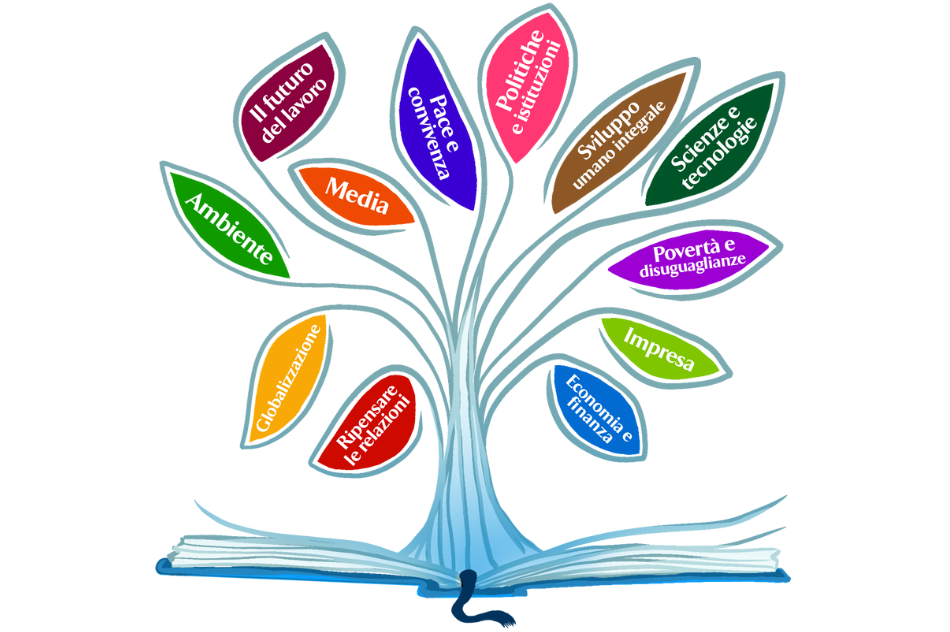The Dictionary of the Social Teaching of the Church. The new things of the XXI century is the open access quarterly Journal of the Centre of the Social Teaching of the Church of the Catholic University of the Sacred Heart. It aims to reach all those who are interested in understanding the challenges of the present in the light of Christian tradition, enhancing the interdisciplinary research that takes place in our university. The project is supported by Università Cattolica del Sacro Cuore and Istituto Giuseppe Toniolo di Studi Superiori.
The social teaching of the Church is a precious resource for people and communities, who wish to live as protagonists in the “change of epoch” we are experiencing. This horizon and this aspiration explain the reasons behind the project of a new Dictionary: a user-friendly tool for learning, understanding, and orienting action.
The Dictionary of the “new things of the 21st century” is ideally linked to a previous venture, the Dictionary of Social Teaching of the Church. Social Sciences and Magisterium, developed by the Centre and published by Vita e Pensiero in 2004. It represents our roots, if we can say so. The Dictionary of “new things” builds on its roots: it resumes the dialogue between sciences and teaching, but broadens its horizons, addressing “new things” and involving new disciplinary perspectives. The format of open access portal, gradually enriched with new items, intends to activate dynamic processes of dialogue and communication, transdisciplinary contamination, generative social actions. Our task today is to take care of new branches of the tree. Here we see the message of the opening image of this Dictionary of "new things": roots and branches. A living tree, because tradition is not a collection of dead things: it happens today, when we pass on to each other the treasure that links us to the origins. These are the 12 thematic areas, the branches of the tree:
Environment: an original view on the environmental issue, repeating that "everything is connected": the cry of the poor and the cry of the planet.
Poverty and inequality: progresses and setbacks in reducing poverty and inequality that need to be mapped and understood.
Integral human development: it cannot be imposed, but it must be built up and allowed to unfold for each individual, for every family and community, where human social life takes place.
Rethinking relationships: we are used to conceiving ourselves as self-determined individuals and passive consumers, not active protagonists in creating change.
Peace and coexistence: rejection of war and implementation of disarmament obligations, but also: development, forgiveness, justice, social friendship, taking care of dignity and of the common good.
Policies and institutions: how to create healthier institutions and policies, more just systems, more effective public interventions, more supportive civil structures?
Science and technology: "new things" that are pressing and transforming our life, opportunities and risk of prevalence of a technocratic paradigm, ultimately dominated by power.
The future of work: work is the key to the social question, in the change of epoch that we are experiencing.
Economics and finance: during the crises of our time, we should rethink and re-establish a "healthy" link between the real economy and finance.
Business: what does it mean to undertake business in the XXI century? As always, it means acting, with others and for others, in the attempt to respond to old and new human needs.
Media: media and networks may shape and transmit cultural attitudes that simply serve the interests of powerful elites; but they also make it possible to feel neighbours to one another, in encounter, in dialogue.
Globalization: along with material growth, globalization also produced much discontent, and it prompted the building of new "walls" between nations.


